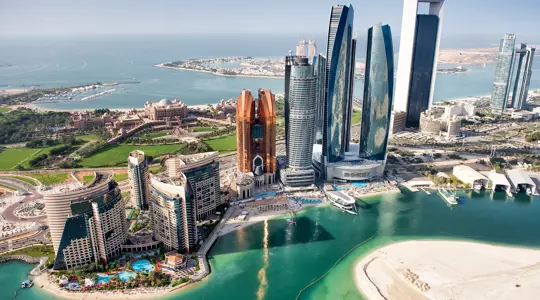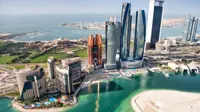UAE market intelligence: construction growth
Our latest UAE market intelligence report’s survey findings reveal a dynamic market undergoing significant growth and transformation. This is driven by the country’s visions, strategies and overall economic and urbanisation goals.
The findings of the 2025 report reflect mainly optimism and economic benefits for the market, if challenges are overcome. The construction sector is key for national growth.
Challenges such as lack of contractors, rising construction and labour costs and global supply chain issues present potential problems. Adopting innovation, digitalisation and upskilling talent is necessary to remain resilient.
Economic diversification drives stability
The UAE’s economic diversification efforts are driving tangible results, with non-oil sectors contributing 75.5 percent to GDP in 2024. The economy remains robust, with GDP forecast to grow by 4.7 percent and inflation remaining steady at 1.9 percent, despite rising housing costs.
This stability is providing budget certainty for major projects. It also reinforces the UAE’s appeal for both local and international investment.
Sectors power regional expansion
This year, mega projects in the real estate, tourism and infrastructure sectors have saw major development with an AED 71.5 billion federal budget. The country has a pipeline of US$772bn worth of construction projects. Transport infrastructure is projected to be the fastest-growing segment by 2030, with a predicted annual growth rate of 5.98 percent compound annual growth (CAGR).
The utilities and energy sectors are also expanding, driven by the UAE Energy Strategy 2050, with a focus on decarbonisation, renewable energy, and water scarcity solutions. Smart cities and mixed-use developments are gaining traction.
The UAE’s projected economic growth is closely tied to the scale of ongoing infrastructure and real estate developments. As oil production resumes, it’s expected to boost government spending on major public projects, especially transportation and utilities. This, in turn, will generate broader economic benefits across multiple sectors.
Current market conditions
While construction costs continue to rise, the UAE remains the most cost-effective place to build in the Middle East. Average construction costs stand at $1,926 m² in Dubai and $1,872 m² in Abu Dhabi.
However, labour and material costs are expected to rise by 5 percent throughout 2025. The need for specialised skills is growing due to the scale and complexity of ongoing projects. This has resulted in the need to upskill local talent.
Tendering competition has slightly decreased, with a shrinking pool of contractors contributing to delays and cost escalations. However, the market remains resilient, with AED143bn in contract awards recorded in Q1 2025.
Improved procurement strategies, digitalisation and new legislation to modernise the construction industry provide an overall positive outlook for the market.
Digital shapes the future
Digital transformation continues to gain momentum across the UAE construction sector, with sustainability initiatives and technological innovation playing a central role in shaping the future of project delivery.
Advanced tools such as building information modelling (BIM), artificial intelligence (AI) and the Internet of Things (IoT) are increasingly being adopted to address the complexities of large-scale developments. These technologies enhance operational efficiency, improve collaboration, and enable more resilient and sustainable construction outcomes.


